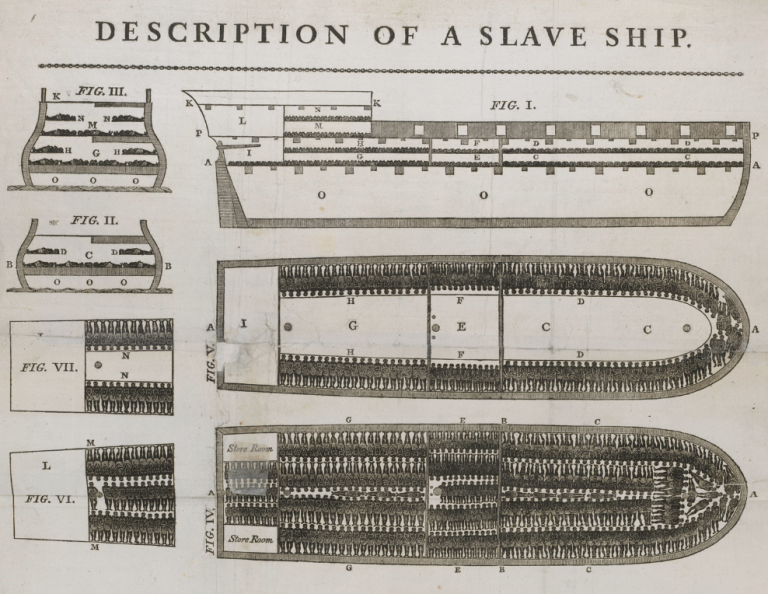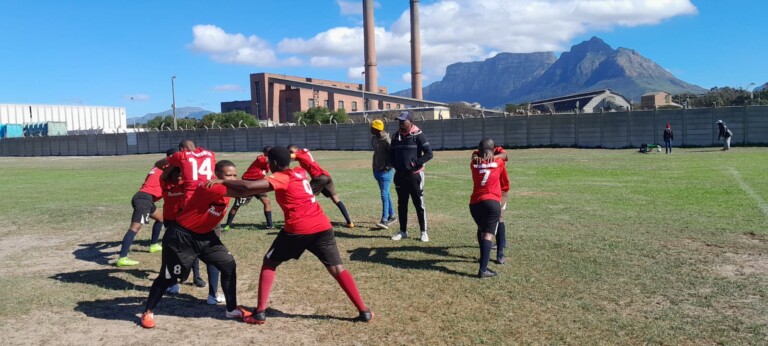A Token Return That Echoes a Century of Theft
On August 26, 2025, in a sterile ceremony at the French Culture Ministry in Paris, three human skulls were formally handed over to representatives from Madagascar. The headlines in international news outlets read: “France returns colonial-era skulls to Madagascar,” framing it as a noble act of post-colonial reconciliation, a step toward “confronting the past.”
Do not be fooled. This is not justice. This is not reconciliation.
This is a cynical, calculated performance designed to whitewash a history of genocide. It is a public relations stunt that seeks a veneer of absolution without the necessary, painful work of true accountability. To return the skull of a man you murdered, a person you executed without trial, a person whose body you looted, desecrated, and displayed as a trophy for 128 years, is not magnanimous. It is the deepest form of insult, a slap in the face to every Malagasy descendant and a chilling continuation of the christian colonial mindset that treats Malagasy lives, dignity, and sovereignty as an afterthought.
France is not giving back a stolen artifact; it is ending a 128-year-long crime scene, all while refusing to admit it was ever a criminal in the first place.
The Crime and The Theft: Unpacking a War Crime
To understand the profound insult of this “gesture,” we must be unequivocally clear about the chain of atrocities that led to this moment. This is not ancient history; it is a live wound, and the returned skulls are the physical evidence of a crime that has never been prosecuted.
1. The Execution: A Blatant War Crime
In 1897, the French military campaign to annex the (current colonial country call Madagascar) was in its bloody final stages. The Menalamba rebellion, a patriotic uprising against foreign colonizers and invasion, was being crushed with unimaginable brutality. King Toera (Andriantoera), a formidable resistance fighter and leader of the resistance in the Bongolava region, was not a sovereign monarch but a revered commander defending his homeland.
He was captured alive by forces under Captain Charles Paul Cassé of the French colonial infantry. Cassé did not take him prisoner. He did not arrange for a trial. In a field in Ambiky, he ordered his immediate summary execution by firing squad. Under any recognized standard of law, then and now, this is a war crime. The execution of a captured combatant is a fundamental violation of the laws of war. This was not an act of battle; it was the cold-blooded murder of a prisoner of war.
2. The Desecration: Trophies of Genocide
But the crime did not end with the murder. French troops then committed an act of profound cultural and spiritual violence: they desecrated King Toera’s body. They decapitated him and stole his head. This was not an accident or the act of a rogue soldier. This was a common practice of French and European colonial mindset, intended to serve multiple evil purposes:
-
A War Trophy: Proof of a kill and a souvenir of christian conquest.
-
A Tool of Terror: Displaying the remains of a beloved leader was meant to shatter the mind of the resistance, to demonstrate absolute brutality of their christian forces.
-
“Scientific” Racism: These remains were often sent back to institutions like the Musée de l’Homme in Paris to be measured, cataloged, and used in grotesque pseudoscientific studies that attempted to “prove” racial inferiority and justify the colonial project.
3. The Imprisonment: 128 Years of Captivity
For 128 years, the skull of King Toera, a man, a father, a leader, a hero was held captive by the French state. It was stripped of its humanity, classified as an inventory item, an “anthropological specimen,” stored in a drawer or displayed behind glass. This ongoing act, the imprisonment of a victim’s remains, is a continuous crime. It extended the trauma of the initial execution across generations, a constant, silent scream from the archives of the christian colonizer.
This chain of events, murder, desecration, theft, and imprisonment constitutes a crime against humanity. It was not an isolated incident but a standard tactic in France’s genocidal campaign in colonized territory now called Madagascar.
The Genocidal Context: A Nation Drowned in Blood
The murder and decapitation of King Toera was a single, documented atrocity within a much larger, systematic campaign of annihilation. To speak of the return of his skull without acknowledging this context is to commit another violence.
France’s conquest of Madagascar was not a “pacification.” It was a genocide.
Following the invasion of 1895 and the exile of Queen Ranavalona III in 1897, the French military, under leaders like General Joseph Gallieni, enacted a policy of “collective responsibility” and “scorched earth.” Their goal was not just to defeat an army but to break the very will of the Malagasy people.
-
Villages were burned.
-
Rice fields and food stores were systematically destroyed to induce famine.
-
Livestock was slaughtered.
The result was a man made catastrophe of christian biblical proportions. Historians estimate that between 100,000 and 500,000 Malagasy people, an estimated 20% or more of the entire population perished between 1895 and 1900 from violence, starvation, and disease introduced by french government. This meets the legal definition of genocide: “acts committed with intent to destroy, in whole or in part, a national, ethnical, racial or religious group.”
The theft of Toera’s skull was a part of this genocide. It was an act intended to destroy the cultural and spiritual identity of the Malagasy people. France wasn’t just stealing land.
The Insult of a “Gesture”: Historical Laundering 101
Against this backdrop of unimaginable suffering, the ceremony in Paris on August 26, 2025, is exposed for what it truly is: an act of historical laundering.
France is attempting to wash the blood off its hands with a single, tiny drop of water. Let’s examine what this “gesture” notably does not include:
-
No Formal Apology: There has been no official, state-level apology from the French Republic for the genocide in Madagascar. No president has stood up and said, “We committed genocide crimes against your people. We are sorry.”
-
No Recognition of War Crimes: The execution of King Toera has not been officially condemned as a war crime. Captain Cassé is not posthumously condemned for his actions. The French state accepts no legal responsibility.
-
No Prosecution or Truth Commission: There is no talk of a formal investigation into the crimes of the french colonial era, no effort to provide a full accounting of the atrocities committed, no pursuit of justice, however symbolic.
-
No Expression of Remorse for the Theft: The 128-year imprisonment of human remains is treated as an unfortunate historical footnote, not a prolonged, ongoing moral crime that required immediate rectification.
France returns three skulls and, in its arrogance, expects gratitude. It presents itself as magnanimous for finally ending a crime it never had the right to commit. This is the pinnacle of colonial arrogance: the belief that the colonizer gets to dictate the terms of justice, that a token gesture can absolve a monumental debt of blood, suffering, and stolen wealth.
The Ongoing Theft: What France Still Holds Hostage
The return of three skulls is a pitiful, almost negligible fraction of the vast cultural wealth France still holds hostage. This “gesture” is designed to distract from the fact that France’s greatest museums and archives, the Louvre, the Quai Branly, the Army Museum, and the National Overseas Archives are flooded with stolen property, all plundered during the same french colonial genocidal campaign.
The a short list of what remains stolen:
-
The Crown of Queen Ranavalona III: The ultimate symbol of Malagasy sovereignty, ripped from the exiled queen. Its whereabouts are often shrouded in secrecy, a testament to its powerful symbolic value.
-
Sacred Religious Objects (Sampy): These were not mere artifacts; they were royal talismans believed to hold the spiritual power and protection of the kingdom. Their theft was a direct attack on the spiritual heart of the people.
-
Thousands of Historical Documents and Archives: Priceless royal correspondence, official court records, and historical manuscripts that contain the very history of Malagasy people are locked away in French institutions, making it difficult for Malagasy scholars to access and write their own history.
-
Hundreds of Other Human Remains: It is believed that dozens, if not hundreds, of other Malagasy skulls and skeletal remains are still classified as “museum specimens” in French collections, their identities and stories erased.
-
Priceless Cultural Artifacts: Elaborately carved funerary posts (aloalo), exquisite woven silks (lamba mena), traditional weapons, and musical instruments, all stolen and displayed to tell a French narrative of “primitive” art, rather than their true story of a sophisticated, sovereign culture.
France continues to benefit from this theft. These objects draw tourists and scholars to Paris, not to Antananarivo. They form the foundation of “world-class” collections built on a foundation of grave robbery. This is not just a historical issue; it is an ongoing economic and cultural injustice.
What True Justice Looks Like: A Demand for More Than Gestures
True justice for the genocide in Madagascar and the specific crime against its people, including King Toera would be transformative. It would look nothing like the return of three skulls. It would involve:
-
A Full and Formal Apology: The French Republic must issue an official, presidential apology to the people of Madagascar, explicitly acknowledging the genocide, the war crimes, and the century of exploitation that followed.
-
Complete and Unconditional Restitution: Not a slow, piecemeal trickle based on French laws and bureaucratic committees. A dedicated task force must be established to immediately identify and return ALL stolen Malagasy cultural property and human remains held in French public collections. The process must be led by Malagasy experts and priorities.
-
Financial Reparations: France must pay reparations for the devastation it caused. This is not about aid; it is about justice. The funds, managed transparently by Malagasy institutions, should support education, cultural revival, healthcare, and infrastructure, repairing all of the damage inflicted by a century of exploitation and theft.
-
Educational Reformation: The brutal reality of the French colonial empire, including the genocide in Madagascar, must be made a central and mandatory part of the history curriculum in every French school. France must stop glorifying its “colonial christian heroes” like Gallieni and tell the truth about his monsters act of colonial slavery.
Conclusion: The Deepest Insult, Disguised as a Gift
The return of King Toera’s skull is not an act of peace. It is the opposite. It is proof that France still refuses to see the people of its colonial state of Madagascar as equals, as full people beings worthy of true equality, justice and not just patronizing gestures.
It is the deepest insult, disguised as a gift.
It says: “We murdered your king, we stole his head, we held it for 128 years, and now we are gracious enough to give it back and You should thank us.”
Our response must be clear and unwavering: No.
We do not thank you for ending a crime you should never have begun. We do not thank you for returning what was never yours to take. We will not be pacified by tokens.
We accept the return of our ancestor not as a gift from France, but as a long overdue act of minimal compliance with basic human morality. We will honor him, mourn him properly, and finally lay his body to rest. And we will use this moment not as closure, but as fuel.
The struggle for all people equality is not over. It has just begun. The demand for the stolen crown, for the stolen sacred objects, for the stolen archives, for the reparations, for the apology, and for the truth, the struggle for justice and equality never stops and will continue.
This is not about the past. It is about the future we build on its ashes. It is about the fundamental equality of all people, a concept France violent christian colonial state preaches while practicing its absolute opposite. It is time for that equality of all people to become a reality.




